Young adults who eat lots of fruits and vegetables have a healthier heart 20 years later. They have less calcified plaque buildup in their arteries, which suggests a lower risk of heart disease.
For the study in the American Heart Association journal Circulation, researchers divided 2,506 study participants into three groups based on their daily intake of fruits and vegetables. Men and women in the top third ate an average of 7-9 servings of daily fruits and vegetables, while those in the bottom third averaged 2.6-3.3 daily servings.
When the study started in 1985, the participants who were 18 to 30 years old provided information about their diet, lifestyle, weight, smoking history and cardiovascular risk factors such as blood pressure.
Twenty years later, they had CT scans to assess calcium buildup on the walls of the arteries of their heart. Those who have more calcium buildup have a greater risk for heart attacks and other heart disease events.
Participants who ate the most fruits and vegetables had a 26 per cent lower risk of developing plaque buildup 20 years later, compared to those who ate the least amount.
This is the first study to examine whether eating more fruits and vegetables as young adults can keep your heart healthy in middle age.
“People shouldn’t assume that they can wait until they’re older to eat healthy—our study suggests that what you eat as a young adult may be as important as what you eat as an older adult, ” the lead author commented.

No surgery for shoulder dislocation
Patients who opt for non-surgical solutions after shoulder dislocation experience fewer complications and disability and return to work sooner compared to those who opt for surgery.
Acromio-clavicular (AC) joint dislocation is one of the most common shoulder injuries often caused by motor vehicle accidents, falls or during sports.
While minor AC joint dislocations are often treated with a sling and physiotherapy, surgery is the most common treatment for severe AC joint dislocations.
But the study in the Journal of Orthopedic Trauma suggests that there isn’t enough evidence to suggest this is actually the best treatment.
Eighty-three patients with severe AC joint dislocations received either surgery followed by rehabilitation or non-surgical treatment with sling and rehabilitation. They were followed for two years.
At six weeks and three months following their injury non-surgical patients showed greater improvement and mobility than surgical patients. While 75 per cent of the patients who did not have surgery returned to work three months after the injury, only 43 per cent of those who underwent surgery were able to return to work.
There were no major differences between the two groups at six months, one year or two years after their injury.
Seven of the surgical patients experienced major complications such as a loose plate or a deep wound infection.
Since the dislocation is not put back in place, more patients in the non-surgical group were dissatisfied with the appearance of their shoulder.
”The main advantages of surgery are that the joint is put back in place and the shoulder appears more symmetrical and pleasing to the eye. The long-term implications of surgery for AC joint dislocation remain unclear when compared to non-operative treatment. While satisfaction with appearance of the shoulder should be a consideration, I believe surgeons should think twice before recommending surgery for an AC joint dislocation—regardless of the severity,” the lead researcher suggested.
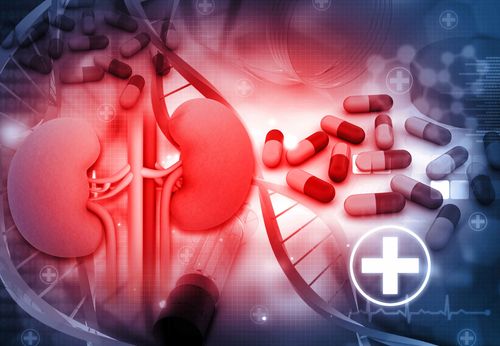
Heartburn drugs raise kidney disease risk
Proton pump inhibitors (PPIs), a class of medication that is widely used to treat heartburn and acid reflux can increase the risk of chronic kidney disease (CKD), according to two separate studies presented at the American Society of Nephrology Kidney Week 2015.
The first study followed 10,482 adults with normal kidney function from 1996 to 2011. PPI users were 20 to 50 per cent more likely to develop chronic kidney disease than non-PPI users. A similar conclusion was seen in a second study by the same team which followed 240,000 patients from 1997 to 2014.
However, people who used a different class of medication known as H2-blockers for heartburn did not have a higher risk of developing kidney disease.
Another stud led Dr. Pradeep Arora found that among 24,149 patients who developed chronic kidney disease out of a total of 71,516 patients, 25.7 per cent had been treated with PPIs. People who took PPIs had a 10 per cent increased risk of chronic kidney disease and a 76 per cent increased risk of dying prematurely.
“As a large number of patients are being treated with PPIs, health care providers need to be better educated about the potential side effects of these drugs, such as CKD. PPIs are often prescribed outside of their approved uses, and it has been estimated that up to two-thirds of all people on PPIs do not have a verified indication for the drug,” said Dr Arora.
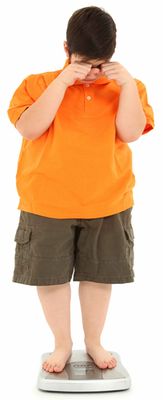
Antibiotics cause weight gain
Frequent antibiotic use may lead to faster weight gain in kids and the effects could linger to adulthood, according to a study from the Johns Hopkins Bloomberg School of Public Health published in the International Journal of Obesity.
The researchers analysed the medical records of 163,820 children between three and 18 years old. 21 per cent of the kids or almost 30,000 children had received seven or more antibiotic prescriptions during childhood. At age 15, they weighed about 1.5 kg more than those who received no antibiotics.
The actual weight gain could be even greater because complete antibiotic histories were not available.
Antibiotics use leads to weight gain because of its effect on the microorganisms that inhabit the body. Antibiotics can kill both the good and bad bacteria thereby altering the way food is broken down, increasing the calories absorbed and leading to weight gain.
"Your BMI [an estimate of body fat] may be forever altered by the antibiotics you take as a child. Our data suggest that every time we give an antibiotic to kids they gain weight faster over time. While the magnitude of the weight increase attributable to antibiotics may be modest by the end of childhood, our finding that the effects are cumulative raises the possibility that these effects continue and are compounded into adulthood,” noted the study author.
Did You Know
Repeating words to another person can boost verbal memory.” Repeating aloud was good for memory, but if it is done in a context of communication, the effect is greater in terms of information recall:” Consciousness and Cognition.

Sex talk with kids
Talking about sex with your kids can be quite awkward and embarrassing. But according to a study published in the journal JAMA Pediatrics, having “sex talk” can have a positive impact on kids and influence their sexual behavior.
For the study, the researchers reviewed 52 studies involving 25,314 teens over the course of 30 years.
Teens who had these conversations with their parents were more likely to practice safer sex behavior and use condoms and other contraceptives. The association was more pronounced for girls and among teens who had such discussions with their mothers.
More and more teens are starting to be sexually active at a young age. Most tend to have unprotected sex which can lead to “poor sexual and reproductive health outcomes, including unplanned pregnancy, sexually transmitted infections, and human immunodeficiency virus infection.”
Parents can play a crucial role in influencing teen sexual behavior. “Youth who are not able to talk with their partners about topics like sexual limits, condoms, and STDs are much more likely to engage in risky sex. When parents model how to have open and honest conversations about sex with their teens, they can help teens learn how to have similar conversations with their dating partners.”
Children who have these conversations with their parents also tend to delay sexual activity.
The study concludes that “parent-adolescent sexual communication is a protective factor for youth."

Singing calms crying babies
Want to calm your crying baby? Trying singing rather than talking. A Canadian study published in the journal Infancy finds that infants remained calm twice as long when listening to a song compared to listening to someone talking even if it was baby talk.
The study, involving thirty healthy babies aged 6-9 months, wanted to find out how singing and speech affect a baby's emotional self-control.
While the babies were calm and the parents sat behind them, the researchers played recordings of baby talk, adult directed speech, or 'play' songs, all in Turkish, so that the language would be unfamiliar. The recordings were played until the infants displayed the "cry face"— lowered brows, lip corners pulled to the side, mouth opening and raised cheeks.
The babies remained calm for an average of nine minutes while listening to songs. Baby-talk kept them calm for just over four minutes, while for adult-directed speech, it was just under four minutes. "The lack of significant distinction between the two types of speech came as a surprise to us," the study author noted.
In a second experiment, the babies remained calm longer when they listened to recordings of their mothers singing songs in a familiar language compared to recordings of baby talk.
"Our findings leave little doubt about the efficacy of singing nursery rhymes for maintaining infants' composure for extended periods. We suggest that the temporal patterning of infant directed singing, with its regular beat, metrical organisation, and tempo, plays an important role in inhibiting distress, perhaps by promoting entrainment and predictive listening,” the study concluded.
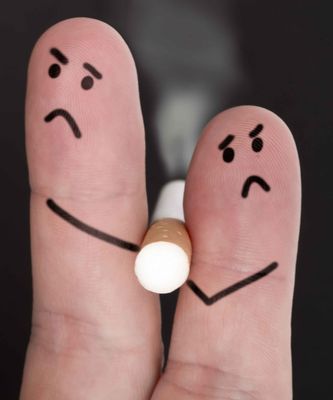
Parents’ smoking can harm kids’ teeth
If a risk of heart disease, cancer and other chronic conditions are not reason enough to quit smoking, here’s one that might harm your children. According to a Japanese study published in the BMJ, children who are exposed to secondhand smoking as babies have an increased risk of tooth decay.
Four out of 10 kids around the world are exposed to secondhand smoke.
The researchers analyzed data on 76,920 children born between 2004 and 2010. The children had health checkups at birth, 4, 9 and 18 months, and at 3 years of age. Mothers answered questions about their kids ‘secondhand smoke exposure, dietary habits and oral care.
About 55 per cent of children had family members who smoked, mostly their fathers. Almost 7 per cent of the children were exposed to secondhand smoke.
14 per cent of kids in non-smoking families had cavities by age 3 compared to 20% in smoking households but without exposure to tobacco smoke and 27.6 per cent in kids exposed to tobacco smoke.
Children exposed to tobacco smoke were more than twice as likely to have cavities by age three compared to kids who lived in non-smoking households. Children whose mothers smoked during pregnancy did not have an elevated risk.
Exposure to tobacco smoke can affect the salivary gland function and other oral functions.

Interrupted sleep
You may be in a worse mood in the morning after a night of interrupted sleep compared to sleeping late.
For the study in the journal Sleep, 62 healthy adults were randomized to one of three sleep conditions over 3 consecutive nights: uninterrupted sleep, delayed bedtimes, or eight forced awakenings during sleep each night.
Using polysomnography, the sleep stages of each participant was monitored. To assess their mood after each night, they were asked to report how strongly they felt positive or negative emotions, such as anger or cheerfulness.
Those who slept late and were subjected to eight forced awakenings showed similar low positive mood and high negative mood after the first night But after the second night, participants in the interrupted sleep group experienced a 31 per cent reduction in positive mood and those in the delayed sleep group experienced a 12 per cent reduction in positive mood. These reductions remained after the third night.
“When your sleep is disrupted throughout the night, you don’t have the opportunity to progress through the sleep stages to get the amount of slow-wave sleep that is key to the feeling of restoration,” the study lead author noted.
Lack of sufficient slow-wave sleep was linked to considerable reduction in positive mood as well as reduced energy levels and feelings of sympathy and friendliness, which “could help explain the strong comorbidity between insomnia and depression.”
Did You Know
Eating processed meat including hot dogs, sausages and ham can cause colorectal cancer: each 50 gram of processed meats eaten daily increases the risk of colorectal cancer by 18 per cent. Consumption of red meat was also found to cause colorectal cancer, associations were also seen for pancreatic cancer and prostate cancer:
WHO
Balloon–in-a-pill
Losing weight can soon be as simple as swallowing a pill. A new gastric balloon that can be swallowed like a pill and then filled with fluid while in the stomach helped patients lose more than a third of their excess weight over a period of four months, according to a study presented at Obesity Week 2015.
The device called Elipse, manufactured by Allurion Technologies, was successfully tried on 34 patients in the Czech Republic and Greece. The patients lost an average of 22 pounds or 37 per cent of their excess weight over four months. They also saw improvements in triglycerides and hemoglobin A1c (HgbA1c) levels, both risk factors for heart disease and diabetes.
A gastric balloon is packed inside a capsule that is attached to a thin tube. Once the capsule is swallowed and reaches the stomach, the shell quickly dissolves. The deflated balloon is then filled with fluid (550 m) - to about the size of a grapefruit – using the tube. The tube is then removed. The balloon remains in the stomach for four months after which the balloon deflates on its own and is excreted naturally from the body.
The most common side effects included nausea and vomiting.
Elipse makes people feel full quicker by reducing the space available in the stomach, delays the emptying from the stomach and also changes hormones that regulate hunger and appetite. It helps people learn portion control and eat less.
“We anticipate that the improved eating habits patients develop will mean that a significant amount of the weight will stay off, even when the balloon is no longer in place," said study co-author Dr. Ram Chuttani, director of Endoscopy and chief, Interventional Gastroenterology at Beth Israel Deaconess Medical Center in Boston. “Our findings demonstrate that Elipse provides individuals and their caregivers with a safe, effective, and non-invasive weight loss intervention that does not require surgery, endoscopy, or anesthesia.”
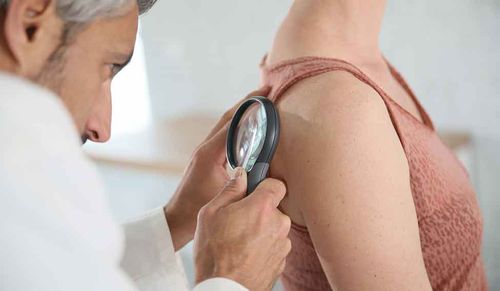
Cold Sore Virus to Fight Skin Cancer
A genetically engineered cold sore virus has been approved by the U.S. Food and Drug Administration to treat melanoma lesions in the skin and lymph nodes.
Imlygic (talimogene laherparepvec), the first FDA-approved oncolytic virus therapy showed promise in a Phase III study involving 436 participants with metastatic melanoma that could not be surgically removed.
The drug is injected directly into the lesions, where it replicates inside cancer cells and causes them to rupture and die.
The treatment involves a series of injections. After the first injection, a second dose is given three weeks later, followed by additional doses every two weeks for at least six months, until there are no remaining lesions to treat or other treatment is required.
The study participants received either Imlygic or a comparator therapy for at least six months, or until there were no remaining injectable lesions. 16.3 per cent of those who received Imlygic saw a decrease in the size of their lesions lasting for a at least six months, compared to 2.1 per cent of those who received the other therapy.
However, Imlygic did not improve overall survival and did not seem to be effective on melanoma that had spread to the brain, bone, liver, lungs, or other internal organs.
The most common side effects included fatigue, chills, fever, nausea, flu-like symptoms and pain at the injection site.
Because Imlygic is a modified live oncolytic herpes virus therapy, it can cause herpes virus infection. So it should not be given to patients with suppressed immune systems or pregnant women.
Imlygic is manufactured by BioVex Inc., a subsidiary of Amgen Inc.
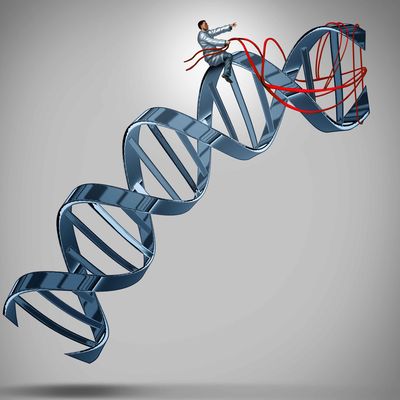
Gene editing
One day before her first birthday, Layla Richards' parents were told their daughter was going to die. All conventional treatments including chemotherapy and a bone marrow transplant to cure her leukemia had failed.
Layla was diagnosed with acute lymphoblastic leukemia when she was just 14 weeks old.
As a last resort doctors from London's Great Ormond Street Hospital (GOSH) for Children decided to try an experimental therapy called gene editing that had been previously tried only in mice.
The procedure involved taking immune cells, called T-cells, from a healthy donor and modifying the genes to create designer immune cells that find and kill cancer cells.
Using a specific genetic tool (TALEN) that acts as a "molecular scissors," the genes were modified in two ways: to make them invisible to powerful leukemia drugs that are given to the patient and would usually kill them; and to target and fight only leukemia cells and not healthy cells.
The treatment was delivered via intravenous line in around 10 minutes. Layla was then kept in isolation for several months to protect her from infections.
Once all her leukemia cells were gone, Layla had a bone marrow transplant to replace her entire blood and immune system which had been wiped out by the treatment.
Layla is now cancer free and recovering at home.
"We have only used this treatment on one very strong little girl, and we have to be cautious about claiming that this will be a suitable treatment option for all children. But, this is a landmark in the use of new gene engineering technology and the effects for this child have been staggering.
If replicated, it could represent a huge step forward in treating leukemia and other cancers," said Prof. Waseem Qasim, Professor of Cell and Gene Therapy at UCL Institute of Child Health and Consultant Immunologist at GOSH.
Full clinical trials in more patients is are now being planned for early 2016.
Did You Know
Children who are exposed to dogs and farm animals at an early age have a 13 per cent and 52 per cent lower risk of asthma by age 6 respectively:
JAMA Pediatrics
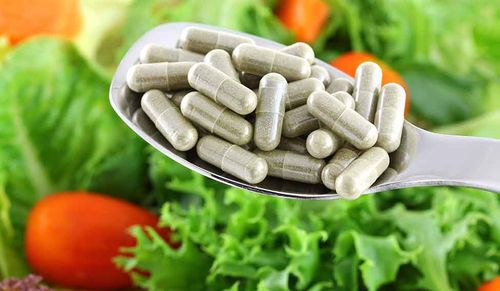
Dietary supplements
Dietary supplements and energy boosting products are a multi-billion dollar industry. People tend to take these products thinking they are harmless.
But according to a study from the US Centers for Disease Control and Prevention published in the New England Journal of Medicine adverse reactions to dietary supplements such as multivitamins, diet pills, herbal products and energy boosters are sending more than 23,000 people to the emergency rooms each year.
Nearly half of the ER visits involved children and young adults between ages 20 and 34. Children’s visits were related to unsupervised ingestion of supplements. With younger adults, the emergencies were related to weight loss or energy products that induced cardiac symptoms such as chest pain, palpitations, and elevated heart rate.
Weight loss and energy products caused nearly 72 per cent of cardiovascular problems linked to a dietary supplement.
Dietary supplements are largely unregulated and many of these products contain banned pharmaceutical ingredients. Dietary supplements can be marketed without proving that they have specific health benefits. Last year, two young adults in the US died of powdered caffeine overdoses.
The study author offers some guidelines for people taking supplements:
Young adults taking products to lose weight or increase energy should keep in mind that some of these products can have effects on their heart, and they should not take these products in excess. If you have a heart condition, talk to your doctor before starting a weight loss or energy supplement.
Older adults should be mindful of possible choking or other swallowing problems from taking supplements. They should avoid taking several pills at once, avoid extra-large pills or capsules, and swallow supplements with plenty of water or other fluid.
Patients should always tell their doctors if they are taking dietary supplements, and which ones.
All medicines and dietary supplements should be stored up, away, and out of sight of young children.






